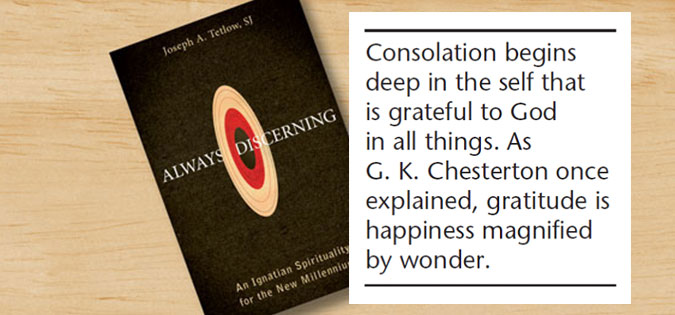
Well, we don’t have parties every day, so how do we experience consolation in everyday life? We feel it in the easy flow of faith and hope and love—head and heart and hands—as we go about doing the next good thing. Consolation keeps us feeling that we are enough and that our life is enough. It lets us sleep well and wake refreshed. We do not fret about whether we are doing God’s will or not. We are not anxious that the world might suddenly end. This hope-filled mind and a quiet heart flow into doing the next good thing even when it is hard or repulsive.
Consolation also comes to us in prayer. On ordinary days we have a fixed time and place to pray, perhaps with the day’s readings. Just managing to keep at this spiritual habit is a consolation. Keeping our attention on God and the things of God is a consolation. And even if we spend time in silence and quiet without thinking much, just being there enacts our belief that God lives, truly loves us, “is mysteriously capable of intervening, that he does not abandon us.”
—Excerpted from Always Discerning by Joseph A. Tetlow, SJ
